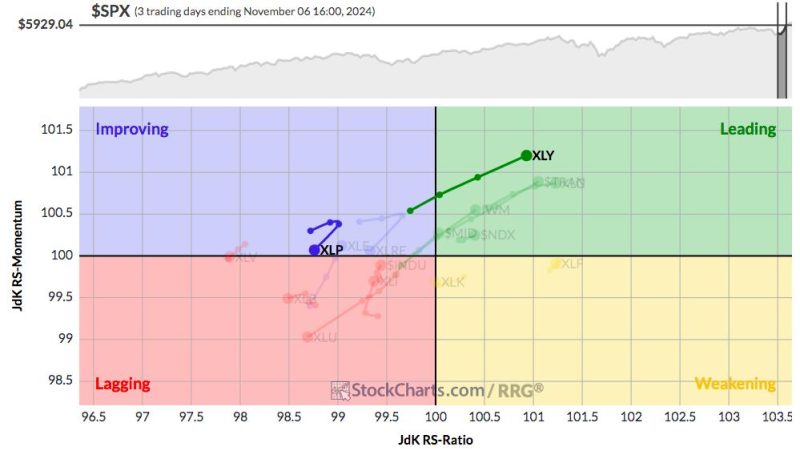As the ongoing secular bull market continues its upward trajectory, investors must remain cautious and prepare for potential changes in market dynamics. While the overall trend remains positive, recent developments suggest a significant rotation may be on the horizon, reshaping the investment landscape in the months ahead.
One key catalyst for this potential shift is the changing economic landscape, both domestically and globally. As countries around the world continue to grapple with the economic fallout of the COVID-19 pandemic, different sectors are facing varying levels of recovery and growth prospects. Industries that have traditionally thrived during periods of economic uncertainty, such as technology and healthcare, may see their dominance challenged by a resurgence in cyclical sectors like energy, financials, and industrials.
Moreover, the unprecedented levels of fiscal and monetary stimulus injected into the global economy over the past year have fueled inflation concerns and raised questions about the sustainability of current stock valuations. As central banks begin to signal a shift towards tighter monetary policy to curb rising inflationary pressures, investors may start to reassess their allocations and seek out sectors that are better positioned to weather a potentially more challenging economic environment.
Another factor driving the rotation thesis is the rapid pace of technological innovation and disruption across various industries. As e-commerce, cloud computing, and digital transformation continue to reshape business models and consumer behavior, companies at the forefront of these trends are likely to outperform their peers. At the same time, traditional brick-and-mortar retailers, legacy tech firms, and other laggards may struggle to keep pace with the evolving competitive landscape.
In this environment, investors should adopt a prudent and diversified approach to portfolio construction, balancing exposure to both growth and value-oriented sectors. By incorporating thematic strategies that capture long-term trends like sustainability, healthcare innovation, and cybersecurity, investors can position themselves to benefit from the ongoing secular bull market while mitigating potential risks associated with market rotations.
Ultimately, staying informed, remaining agile, and maintaining a long-term perspective will be critical for navigating the evolving investment landscape and capitalizing on the opportunities presented by changing market dynamics. While the secular bull market continues to march forward, investors must be prepared to adapt to new realities and embrace a proactive approach to portfolio management in order to achieve their financial goals in the years ahead.

